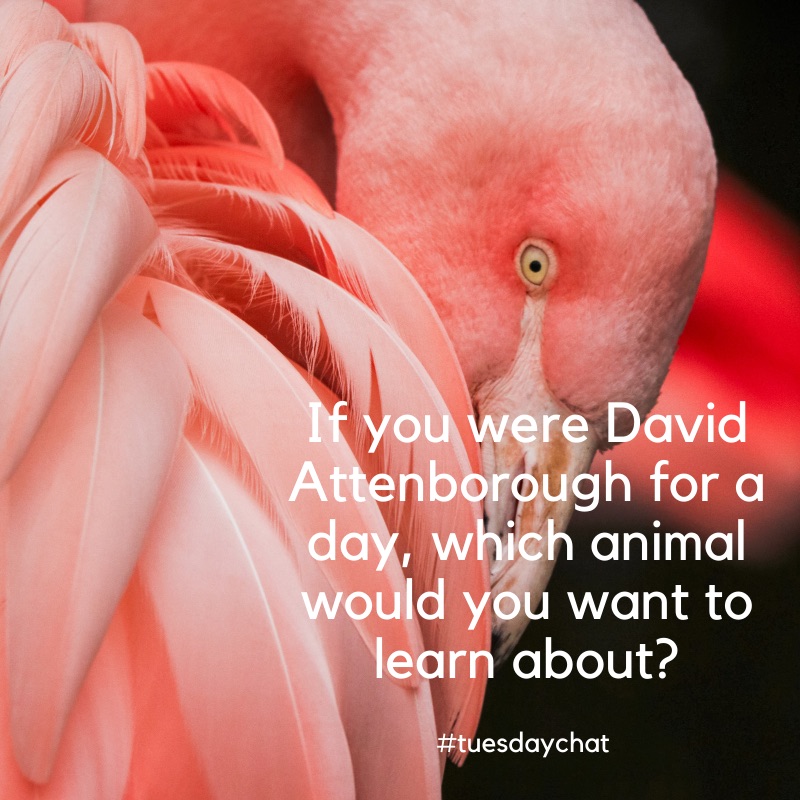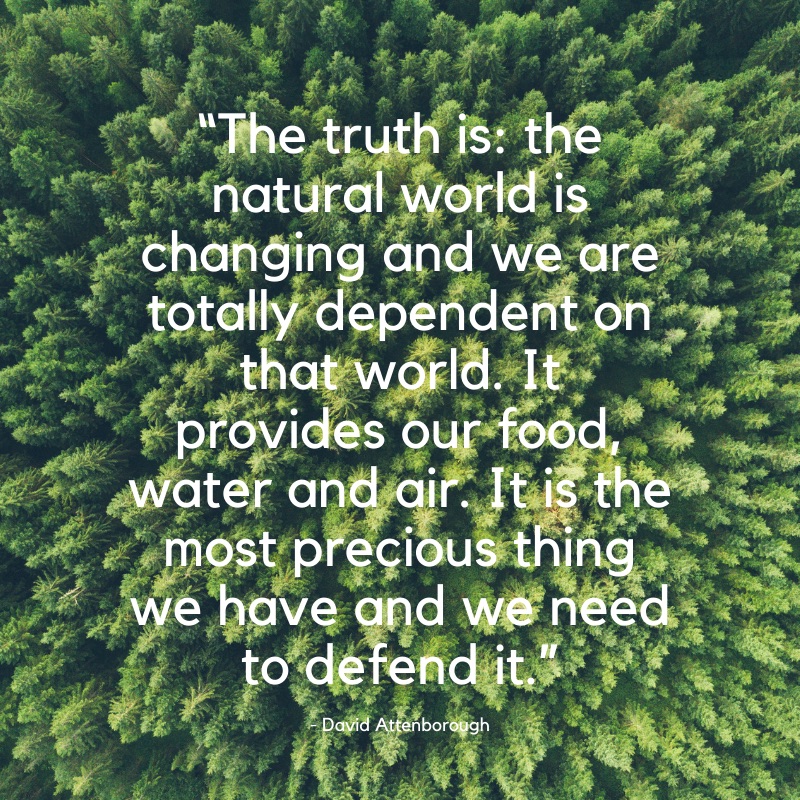Sir David Attenborough has been observing this world closely for over 60 years and has a few words of advice and caution for us. In his latest special on Netflix he shares how steeply the planet’s biodiversity has diminished over his lifetime. His work throughout his career has uncovered amazing species that we would never ordinarily be aware of or see and so today we are sharing a small fraction of his amazing work.
Find a spot to sit with a cup of tea, and clear the diary for the afternoon as we’re sure these books will inspire you to explore our wonderful world more…
A Life on Our Planet; My Witness Statement and Vision for the Future by David Attenborough
Hands down this is one the best books of the year. See the world. Then make it better. David Attenborough is currently 93 years old and has had an extraordinary life. It’s now, on reflection of his life, that he can appreciate how extraordinary and fragile the world is. The tragedy of our time has been happening all around us, barely noticeable from day to day; the loss of our planet’s wild places, its biodiversity. Attenborough has been witness to this decline. A Life on Our Planet contains his witness statement, and his vision for the future, the story of how we came to make this, our greatest mistake, and how, if we act now, we can yet put it right. We have the opportunity to create the perfect home for ourselves and restore the wonderful world we inherited. All we need is the will to do so.
Adventures of a Young Naturalist; Sir David Attenborough’s Zoo Quest Expeditions by David Attenborough
In 1954, a young television presenter was offered the opportunity of a lifetime, to travel the world finding rare and elusive animals for London Zoo’s collection, and to film the expeditions for the BBC. His name was David Attenborough, and the programme, Zoo Quest, not only heralded the start of a remarkable career in broadcasting, but it changed the way we viewed the natural world forever. Written with his trademark wit and charm, Zoo Quest is not just the story of a remarkable adventure, but of the man who made us fall in love with the natural world, and who is still doing so today.
Journeys to the Other Side of the World; Further Adventures Of A Young Naturalist by David Attenborough
Following the success of the original Zoo Quest expeditions, in the late 1950s onwards the young David Attenborough embarked on further travels in a very different part of the world.
From Madagascar and New Guinea to the Pacific Islands and the Northern Territory of Australia, he and his cameraman companion were aiming to record not just the wildlife, but the way of life of some of the indigenous people of these regions, whose traditions had never been encountered by most of the British public before.
From the land divers of Pentecost Island and the sing-sings of New Guinea, to a Royal Kava ceremony on Tonga and the ancient art of the Northern Territory, it is a journey like no other. Alongside these remarkable cultures he encounters paradise birds, chameleons, sifakas and many more animals in some of the most unique environments on the planet. Journeys to the Other Side fo the World is an inimitable adventure among people, places and the wildest of wildlife.
Life in Cold Blood by David Attenborough
Life in Cold Blood offers a rare glimpse into the peculiar world of amphibians and reptiles, the first vertebrate creatures to venture forth from the primeval waters millions of years ago, yet which today include species that are the most at risk of extinction. Join acclaimed naturalist Sir David Attenborough as he travels to the far corners of the Earth to tell the epic story of these animals in this companion to the television series. Discover the secrets of their astounding success and the profound implications of their uncertain future. Amphibians and reptiles once ruled the planet, and their descendants exhibit some of the most colourful variety and astounding behaviour known to the animal kingdom. What are the origins of these creatures? How have they transformed themselves into the beautiful and bizarre forms found today? In this gorgeously illustrated book, Attenborough gets up close and personal with the living descendants of the first vertebrates ever to colonise the land, and through them traces the fascinating history of their pioneering ancestors. He explains the ways amphibians and reptiles have changed little from their prehistoric forebears while also demonstrating how they have adapted and evolved into diverse new forms, some of them beyond our wildest imaginings. And Attenborough raises awareness of the threats global warming and other man-made environmental changes pose to many of these creatures.
Life on Earth by David Attenborough
Originally published in 1979, this is a new, fully updated edition of David Attenborough’s groundbreaking Life on Earth. David Attenborough’s unforgettable meeting with gorillas became an iconic moment for millions of television viewers. Life on Earth, the series and accompanying book, fundamentally changed the way we view and interact with the natural world setting a new benchmark of quality, influencing a generation of nature lovers.
Told through an examination of animal and plant life, this is an astonishing celebration of the evolution of life on earth, with a cast of characters drawn from the whole range of organisms that have ever lived on this planet. Attenborough’s perceptive, dynamic approach to the evolution of millions of species of living organisms takes the reader on an unforgettable journey of discovery from the very first spark of life to the blue and green wonder we know today.
Now, to celebrate the 40th anniversary of the book’s first publication, David Attenborough has revisited Life on Earth, completely updating and adding to the original text, taking account of modern scientific discoveries from around the globe. He has chosen beautiful, completely new photography, helping to illustrate the book in a much greater way than was possible forty years ago.
This special anniversary edition provides a fitting tribute to an enduring wildlife classic, destined to enthral the generation who saw it when first published and bring it alive for a whole new generation.
Life on Air by David Attenborough
There are very few places on the globe that David Attenborough has not visited. In this volume of memoirs David tells stories of the people and animals he has met and the places that he has visited. Sir David’s first job after Cambridge University and two years in the Royal Navy was at the London publishing house Hodder & Stoughton. Then in 1952 he joined the BBC as a trainee producer and it was while working on the Zoo Quest series from 1954-64 that he had his first opportunity to undertake expeditions to remote parts of the globe to capture intimate footage of rare wildlife in its natural habitat. He was Controller of BBC2 from 1965-68 during which time he introduced colour television to Britain, then Director of Programmes for the BBC from 1969-1972. However in 1973 he abandoned administration altogether to return to documentary-making and writing. Over the next 25 years he established himself as the world’s leading natural history programme maker with several landmark BBC series, including Life on Earth (1979), The Living Planet (1984), The Trials of Life (1990), The Private Life of Plants (1995) and Life of Birds (1998). Sir David Attenborough is a Trustee of the British Museum and the Royal Botanic Gardens, Kew: an Honorary Fellow of Clare College, Cambridge: a Fellow of the Royal Society and was knighted in 1985.
To see more of David Attenborough’s books please click here and for his DVDs click here.
Enjoy!























